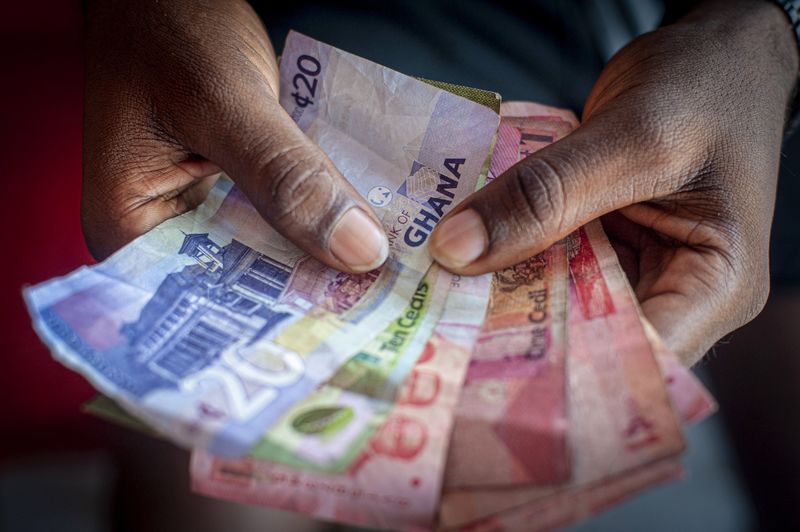The Ghana cedi has been named the world’s best-performing currency this month, after appreciating nearly 16 per cent against the US dollar since the start of April 2025 per Bloomberg.
The currency’s rally has helped ease inflationary pressures, contributing to Ghana’s lowest inflation rate in eight months. As of today, the cedi is trading at GH₵13.4 against the dollar.
Consumer price inflation fell to 21.2 per cent in April, down from 22.4 per cent in March, Government Statistician Alhassan Iddrisu announced in Accra on Wednesday. Monthly price increases slowed to 0.8 per cent, driven largely by falling import costs due to the cedi’s strength.
Non-food inflation dropped to 17.9 per cent from 18.7 per cent, while food inflation also eased, declining to 25 per cent from 26.5 per cent. “A rally in the cedi reduced the cost of imports,” Iddrisu confirmed, crediting the currency’s appreciation with driving much of the recent inflation relief.
Bloomberg data showed that since the beginning of April, the cedi has outpaced all global currencies in terms of gains against the US dollar, bolstering consumer confidence and easing pressure on the cost of imported goods.
Despite this progress, analysts say it’s unlikely that the Bank of Ghana will rush to lower interest rates at its upcoming policy meeting. “It tightened at its last meeting to mop up any excess liquidity,” said Dr. Agyapomaa Gyeke-Dako, an economist and senior lecturer at the University of Ghana Business School. “So now the central bank action going forward may not readily reduce the monetary policy rate yet because there might still be some threats to inflation coming from the hikes in utility prices.”
The Monetary Policy Committee (MPC) had surprised markets in March with a 100 basis-point hike, raising the key rate to 28% as part of efforts to stabilise prices. The central bank has indicated it will continue to assess inflation trends before easing its stance.
“Easier monetary conditions could rekindle inflationary pressures,” warned Mark Bohlund, senior credit analyst at REDD Intelligence, cautioning that the Bank of Ghana may hold off on any near-term rate cuts.
However, there is cautious optimism for rate relief later in the year if disinflation continues. “As the monetary authority sees the next readings of inflation and we see declines, the committee will reassess the scope for a gradual easing in the policy stance,” Governor Johnson Asiama said following the March meeting.
Inflation in Ghana has remained above the central bank’s target band of 6 per cent to 10 per cent since September 2021, following a debt crisis that triggered a sharp depreciation in the cedi and sent import costs soaring. The MPC forecasts inflation could fall to around 16% by the end of 2025, and gradually return to the target range by the second quarter of 2026.
The International Monetary Fund (IMF), which is working closely with Ghana under a support programme, also expressed optimism. “It makes us very confident that inflation is going to go down in the next few months toward the program objectives,” said Stéphane Roudet, IMF Mission Chief to Ghana, during a recent briefing in Washington.
As the West African nation continues efforts to restore economic stability, the resurgence of the cedi has emerged as a bright spot—both a symbol and a tool of recovery.
